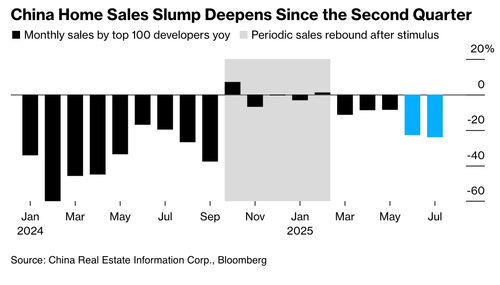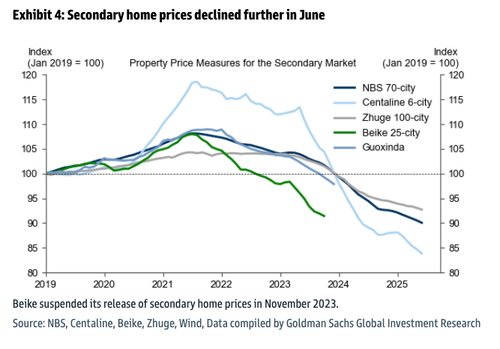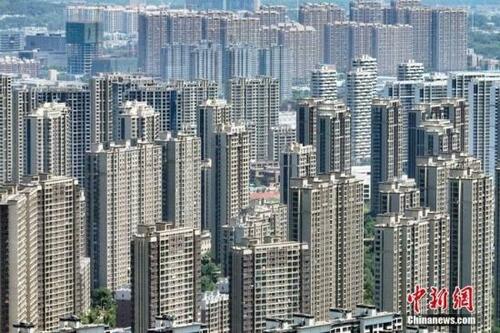John Lam, head of China and Hong Kong property research at UBS, has pushed back his recovery timeline in China's battered real estate sector to the second half of 2026. The delay reflects fading sales momentum and growing stimulus fatigue from the People's Bank of China, raising doubts about near-term tailwinds for the world's second-largest economy.
In March, Lam told clients that home prices across top-tier markets would "turn stable" by early 2026. That forecast has been pushed out to mid-to-late 2026 unless more stimulus measures are rolled out.
"The sales momentum has become tepid in recent months," Lam said in an interview, quoted by Bloomberg, adding, "If that continues, a recovery will occur later than expected."
Last month, Goldman analysts led by Andrew Tilton warned clients that China's housing market continues to accelerate to the downside (read the note).
This raised questions about whether Beijing may revive its 2015 stimulus playbook (read the note).
Related:
Bloomberg noted, "Lam is known for downgrading China Evergrande Group at the start of 2021, 11 months before the nation's most indebted developer defaulted during the housing meltdown," adding, "He also took a bold stance last year by turning bullish on the sector, even as most of his peers were forecasting a further decline."
Here are some of the key points from Lam about China's delayed property market recovery:
Sales Slowdown: Home sales by the top 100 developers have declined over 20% for two consecutive months, while new-home prices fell .27% in June, marking the steepest drop in eight months.
Inventory Rising: Inventory turnover in tier-one cities rose from 14 months in March to 20.7 months in June, signaling soft demand and delayed absorption.
Stimulus Fatigue: Existing stimulus measures appear to be slowing. The Politburo recently declined to add more property-specific support despite mounting pressure.
The bottom line is that China's property market downturn will persist through the second half of this year and into early next year. Signs of recovery may begin to emerge at some point in 2026, potentially creating upside scenarios in beaten-down property stocks.
Loading recommendations...


